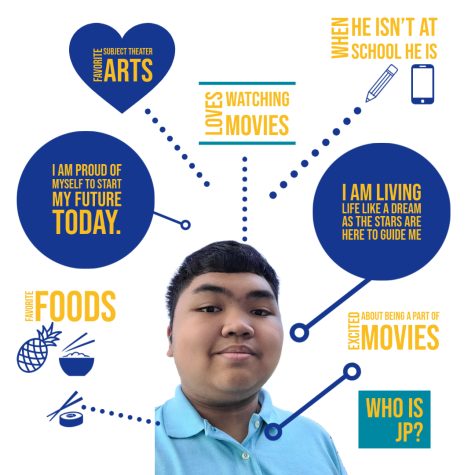Since the dawn of technology, communication has evolved. As social media keeps developing, many people have options for communicating with each other. However, these options took a toll on social communication.
What was life like before social media?
Before social media was invented, social communication was thriving. Chris Rodriguez, a student from Colonia High School stated, “It’s a natural, healthy, and essential part of life that plays a major role in human development.” Learning about each other makes us understand others better.
Social communication brings people much closer. Mrs. Brennan, an English teacher at Colonia High School said, “Networking can really help you personally and at work.” Friendships and relationships grew through social communication.
Oberlo reports, “The latest social media statistics show that there are 3.78 billion social media users worldwide in 2021 – and this number is only going to continue growing over the next few years.” This further proves social media’s growth in modern culture and development.
Is everyone sociable?
However, it’s not easy for everyone to be sociable. It depends on our skills, personality, and upbringing. Everyone has a different way of communicating. Some people can be shy, and maybe they’re not confident talking to others. Other people can be busy with their goals, jobs, or responsibilities. Others may find it easier to communicate with others.
There are distinct reasons people are at different levels of communication. In fact, nature vs. nurture can be a solution to people’s communication skills.
What are others’ point of view?
Tana Ososki from Rubicon states, “The events that happen around a child have high impacts in their future life. Even something as small as a loud sound as a baby can cause post-traumatic stress…when a child grows up with the idea that their opinions are not worth sharing then that will translate to when they are older, making them more silent.” Although trauma can cause much more than introversion, it can be a key factor to a quieter personality.
Children often mimic our parent’s behavior. People unconsciously adopt their beliefs and opinions as a way of developing. If someone has introverted parents, there’s a chance they can adopt their parents’ communication style.
Annika Rock contrasts Ososki’s theory. “Many people believe that being an extrovert versus an introvert is due to their environment, but it is most likely due to genetic traits. An example of this is due to the genetic correlation of genes to stimulation alertness. Introverts have more of this “alertness” chemical than extroverts do…”
Introversion and extroversion can be measured by genetics and how much of a certain chemical we have. The excess chemical found in quieter people can result in higher levels of sensitivity to crowds or speaking to many people. There’s a misconception that extroverts are considered happier because of their communication skills, but that is false because the arousal chemical doesn’t measure levels of happiness.
What are the consequences of online communication?
Nowadays, our generation is dependent on texting and video-calling. As a result, some people don’t know how to communicate personally. Though, there are benefits when it comes to texting. Awkward timing can occur sometimes in conversations.
If the conversation you’re having with someone is very distant, that’s understandable. When it comes to in-person communication, texting plays a major problem in miscommunication.
Why is texting different from socializing?
Texting is not as communicative as talking in-person. Text messages could be misinterpreted in a way you never intended them to be.
Turbo Future wrote, “The sheer brevity of texts, coupled with a lack of verbal tone, facial expressions, eye contact, and body language make it very easy for misunderstandings to occur.” In return, this can lead to difficulty picking up on body language when socializing in-person.
Texting is impersonal, therefore it lacks the expressiveness of social communication. Services like Apple and Android have updated their texting features to enable more visual expression, but it still doesn’t compare to the reality of face-to-face communication.
Texting can also lead to impatience in communication. Turbo Future also stated, “There is a tendency to treat each text received as if it is likely to be urgent, even though many are trivial or not time-sensitive. Receiving messages can also put you under pressure because senders often expect an immediate response.” This can potentially lead to interruptions and irritability in, in-person socializing.
Text messages can also lead to distractions. Teenagers can lose focus on what’s important such as homework and classroom instruction. This can lead to a cognitive distraction for students who are supposed to be focusing on schoolwork.
Are there any tips on how to be sociable?
Honestly, not all conversations are easy to practice. After someone brings up a very interesting topic, it usually ends with very awkward silence. It’s that feeling where nobody knows what to talk about next. In most cases, they would follow up the topic with something similar. For some, they would talk about something else. It’s okay to plan out what you say. However, they might not know how to react.
Unless if it’s a serious and difficult topic to ask, don’t plan it out. Improvising your conversations can hint on what they’ll say next. If you know a person, talk about what they like.
If you don’t know a person, try to notice your surroundings and make a discussion out of it. However, if they don’t have time for you, don’t take it personally. Mr. Hulak stated, “The thing about being sociable is to accept that not everyone is sociable.”
There’s a billion other people out there in the world, looking for a different person. Everyone truly deserves to have a relationship or a friendship with someone. However, communication takes time to improve. It’s not a dating app where you instantly matched with someone. We need time to understand each other better. Social connections need time to develop and balance.











